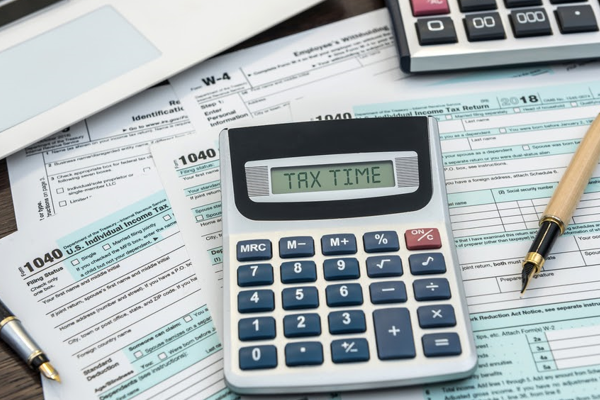 Americans who thought they should buy some cryptocurrency in 2021 might be in for a rude awakening. With less than a month to go before the April 15 filing deadline, the IRS is warning taxpayers that they will be in trouble if they invest in cryptocurrency assets and fail to answer the cryptocurrency question on the front page of their tax return.
Americans who thought they should buy some cryptocurrency in 2021 might be in for a rude awakening. With less than a month to go before the April 15 filing deadline, the IRS is warning taxpayers that they will be in trouble if they invest in cryptocurrency assets and fail to answer the cryptocurrency question on the front page of their tax return.
On the front page of Form 1040, Form 1040-SR, and Form 1040-NR is a checkbox regarding “virtual currency” – meaning Bitcoin, Ethereum, and all other cryptocurrencies. The question on the return asks, “At any time during 2021, did you receive, sell, exchange, or otherwise dispose of any financial interest in any virtual currency?”
The IRS says the question “must” be answered by every single taxpayer, not just the ones who bought or sold cryptocurrencies in 2021.
When you should check “no”
Taxpayers who merely owned virtual currency at any time in 2021 can simply check the “No” box IF they did not engage in any transactions involving virtual currency during the year. They can also check “No” if their activities were limited to:
- Holding virtual currency in their own wallet or account;
- Transferring virtual currency between their own wallets or accounts;
- Purchasing virtual currency using real currency, including purchases using real currency electronic platforms such as PayPal, Revolut, and Venmo; and
- Engaging in a combination of holding, transferring, or purchasing virtual currency as described above.
Where should taxpayers check “yes”?
The IRS says taxpayers and preparers need to check “Yes” if they sold cryptocurrencies, exchanged one virtual currency for another, used it for purchases, received it as a payment, or acquired it through mining or “staking.” SoFi defines “staking” as the process of locking up cryptocurrency holdings in order to obtain rewards or earn interest.
There are some other details that the IRS says it needs taxpayers to pay attention to. Here’s what the most common transactions in virtual currency that require checking the “Yes” box on a tax return:
- The receipt of virtual currency as payment for goods or services provided;
- The receipt or transfer of virtual currency for free (without providing any consideration) that does not qualify as a bona fide gift;
- The receipt of new virtual currency as a result of mining and staking activities;
- The receipt of virtual currency as a result of a hard fork;
- An exchange of virtual currency for property, goods, or services;
- An exchange/trade of virtual currency for another virtual currency;
- A sale of virtual currency; and
- Any other disposition of a financial interest in virtual currency.
While it may be a little deep in the weeds for most average taxpayers, the IRS also says checking the “Yes” box is necessary for these two situations:
- If a taxpayer disposed of any virtual currency that was held as a capital asset through a sale, exchange, or transfer, they must check ‘Yes’ and use Form 8949 to figure their capital gain or loss and report it on Schedule D (Form 1040).
- If a taxpayer received any virtual currency as compensation for services or disposed of any virtual currency that they held for sale to customers in a trade or business, they must report the income as they would report other income of the same type (for example, W-2 wages on Form 1040, 1040-SR, or 1040-NR, line 1, or inventory or services from Schedule C on Schedule 1).
Does this give you a headache?
The IRS says taxpayers should look at page 17 of the 2021 Form 1040 Instructions PDF and visit Virtual Currencies for more general information on virtual currencies and other related resources.
The agency also offers phone support for taxpayers who need assistance. If you are an individual and have questions regarding a Form W-2 or a Form 1099 that you have either received or should have received, please call the general IRS assistance toll-free number at 800-829-1040
Another resource the agency offers is its free tax return preparation service. Not everyone will fit the criteria for the complimentary service, but it may be worth checking out if you’re a senior or a person living on a limited income.
Become a Harlem Insider!
By submitting this form, you are consenting to receive marketing emails from: . You can revoke your consent to receive emails at any time by using the SafeUnsubscribe® link, found at the bottom of every email. Emails are serviced by Constant Contact








